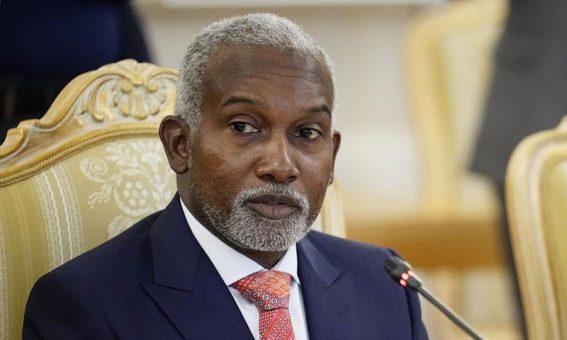
The Minister of Foreign Affairs, Yusuf Tuggar, yesterday launched the Regional Partnership for Democracy (RPD), an initiative that aims to deepen the democratic process in Africa.
Tuggar blamed the recent unconstitutional change of governments in some African states on structural weaknesses. The minister noted that democracy was gradually sliding and that the situation was affecting the 2063 target of silencing the gun in Africa.
He described the RPD, which is the brainchild of President Bola Ahmed Tinubu, as the solution to addressing the democratic challenges.
Tuggar spoke at the signing ceremony of the RPD, organised by his ministry and the United Nations Development Programme (UNDP) in Abuja.
He said: “At the root of many of Africa’s governance challenges lies the uncritical transplantation of governance models and values that do not adequately reflect our cultural contexts, our social norms, or our historical experiences. This incongruity generates friction and that friction all too often manifests as democratic stagnation, institutional fragility, or, indeed, flagrant abuses of power.
“It is in direct response to these circumstances that the RPD was conceived. The RPD rests on a simple, yet powerful proposition: that democracy flourishes most sustainably when it is rooted in African values and attuned to local peculiarities, whilst drawing judiciously from global best practices. Such carefully calibrated synthesis is indispensable, if democracy is to enjoy genuine ownership, legitimacy, and long-term durability among our people. The variable geometry of democracy, its different forms and speeds need to be taken into account.”
Tuggar noted that democratic governance in Africa “is confronted by sobering and deeply complex challenges despite efforts embodied in mechanisms such as the African Union’s Peer Review Mechanism, and other numerous national reforms”.
He added: “Too often, these structural weaknesses culminate in unconstitutional changes of government or protracted political instability; conditions which, in turn, fuel insecurity and violence.”
The minister argued that “these troubling developments stand in stark contrast to the noble aspirations of Agenda 2063, most notably the collective ambition to silence the guns on our continent”.
He explained that the current wave of protests was not about Africa or its youths but about disconnection.
Citing the recent distortions in reporting, especially in the Western media, where there is manipulation of social media algorithms, Tuggar said: “I make bold to assert that it is not an African problem, a youth problem or even a democracy problem. It is a problem of how to match expectations to capacity and delivery, further exacerbated by the rapid speed of social media.”
The minister insisted that “RPD can help in tackling the Gordian Knot of misinformation and disinformation in our region”.
The representative of UN Coordinator in Nigeria, Ms. Elsie Atafua, said: “Today’s milestone signals that Nigeria is not only shaping the regional democratic landscape, but also charting a path for Africa-led, Africa-owned transformation. The Regional Partnership for Democracy is not merely a programme. It is a compact of values.
“It is Africa-led, regionally anchored, and globally significant, grounded in our belief that the access to Africa’s darkness challenges lies within Africa itself.
“Through its four pillars, the Regional Partnership for Democracy will, first of all, strengthen democratic institutions and public accountability. Number two, broaden inclusive citizen participation, especially for women, youth, and persons with disabilities.
“Number three: promote credible and transparent electoral systems. And finally, foster regional cooperation and peer learning so that democracy delivers for the people of West Africa. The RPD is designed to serve as a catalyst platform, transforming democratic ideals into practical tools, strengthening systems that deliver, and building confidence among citizens that darkness can be inclusive, can be predictable, and can be just.
“Across West Africa, Excellencies, we are witnessing powerful examples of democratic consolidation and leadership that inspire confidence in our shared future. From Liberia’s electoral conduct to Ghana’s enduring democratic stability to Senegal’s recent democratic milestones and Nigeria’s own record of successive peaceful transitions, West Africa continues to demonstrate that democracy remains alive, democracy remains resilient, and democracy remains capable of renewal.
“The Regional Partnership for Democracy builds on these gains, enhances the region’s collective courage, leadership, and experience to scale what is working, deepen institutional reforms, and accelerate a continental pathway where democracy becomes not only an aspiration, but a lived reality delivering development, peace, and opportunity.
“To realise this vision, we must build a vibrant consortium of partners within the West African region and amongst friends of West Africa to mobilise the resources and expertise needed to power implementation.
“For our part, UNDP, together with our UN family, will work with the governments, development partners, civil society, private sector, amongst others, to mobilise financing and technical expertise for this transformative agenda as we continue to catalyse an integrated and accelerated implementation process.
“We will also ensure that the implementation of this programme is grounded in global best practice, strong fiduciary standards, and the highest level of accountability.
“So, excellences, how do we move from vision to action? Let me say a few words. The signing we witnessed today is not a conclusion, but a beginning.
“A movement to build public trust, reaffirm constitutionalism, and make democracy deliver tangible benefits to our citizens. At its core, this movement is about people, citizens who vote, organise, and dream of a government that listens and serves. They are at the heart of democracy, and their participation is our greatest measure of success.
“The Regional Partnership for Democracy will be implemented not from Abuja alone, but across West African capitals, institutions, and communities, ensuring true regional ownership and shared responsibility for results…”
Source; The Nation News
